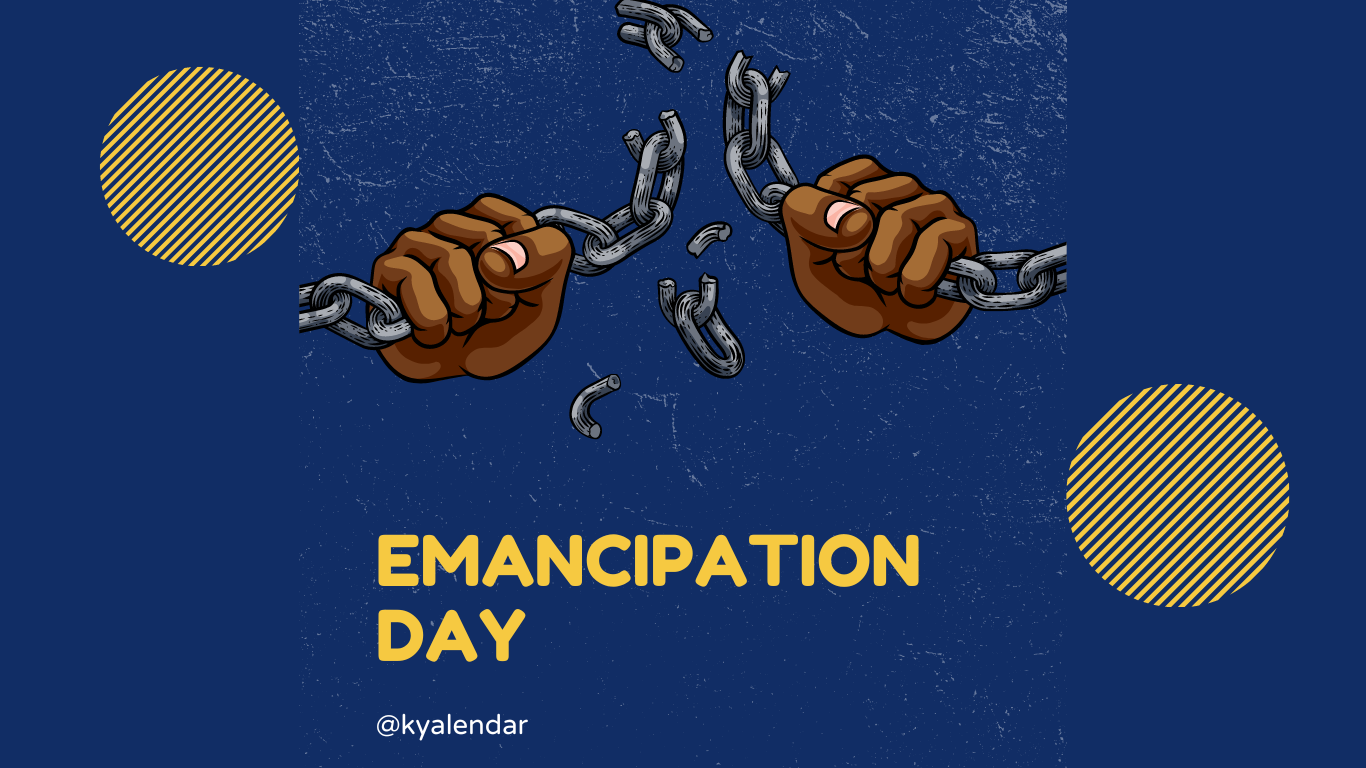
- This event has passed.
Emancipation Day
August 1

Emancipation Day is celebrated on August 1st in several countries, primarily in the Caribbean, to commemorate the abolition of slavery in the British Empire. This day marks the end of a brutal chapter in history and celebrates the freedom of enslaved Africans and their descendants. Here’s a detailed look at Emancipation Day:
Historical Background
- Abolition of Slavery: The British Parliament passed the Slavery Abolition Act on August 28, 1833, which came into effect on August 1, 1834. This act freed more than 800,000 enslaved Africans in the British colonies, including the Caribbean.
- Apprenticeship System: Initially, the freed individuals were subjected to a system of “apprenticeship,” which required them to continue working for their former owners for a set period. This system was abolished in 1838, leading to full freedom.
Significance
- Symbol of Freedom: Emancipation Day is a powerful symbol of the end of a system that treated human beings as property. It celebrates resilience, resistance, and the fight for human rights.
- Cultural Identity: The day is also a celebration of African heritage and culture, recognizing the contributions of African descendants to the culture and society of the Caribbean and other regions.
Celebrations and Traditions
- Parades and Festivals: Many countries hold vibrant parades, featuring music, dance, and elaborate costumes that reflect African heritage.
- Religious Services: Churches often hold special services to honor the ancestors and reflect on the significance of the day.
- Cultural Performances: Drumming, storytelling, and traditional dances are common, showcasing the rich cultural heritage of the African diaspora.
- Historical Reenactments: Some places stage reenactments of significant events related to slavery and emancipation, educating the public about the history and struggles of enslaved people.
Major Celebrations by Country
- Jamaica: Emancipation Day is a public holiday, marked by cultural performances, parades, and ceremonies. The celebration is part of the larger Emancipation and Independence celebrations, leading up to Independence Day on August 6th.
- Trinidad and Tobago: The day is a public holiday with various cultural events, including the Canboulay reenactment, which showcases the history of resistance to slavery.
- Barbados: Emancipation Day is a significant national holiday, featuring concerts, educational events, and cultural exhibitions.
- Guyana: Emancipation Day is celebrated with traditional African dances, music, and ceremonies honoring the ancestors.
- Bermuda: Known as the “First of August,” it is celebrated with a public holiday featuring parades, festivals, and community gatherings.
Emancipation Day in Other Regions
- Canada: Emancipation Day is observed in some parts of Canada, especially in Ontario. The day commemorates the abolition of slavery across the British Empire and recognizes the contributions of Black Canadians.
- United States: While not widely celebrated as Emancipation Day, several states and cities have events to commemorate the end of slavery. Juneteenth, celebrated on June 19th, marks the emancipation of enslaved people in Texas and is a significant observance related to the abolition of slavery in the U.S.
Educational and Reflective Activities
- Lectures and Seminars: Many organizations and educational institutions hold lectures and seminars on the history and legacy of slavery.
- Exhibitions: Museums and cultural centers often host exhibitions showcasing artifacts, documents, and art related to slavery and emancipation.
- Community Discussions: Forums and discussions are held to reflect on the progress made since emancipation and the ongoing struggles for racial equality and justice.
Emancipation Day serves as a reminder of the struggles and triumphs of the past, a celebration of cultural heritage, and a call to continue the fight for freedom, justice, and equality for all.